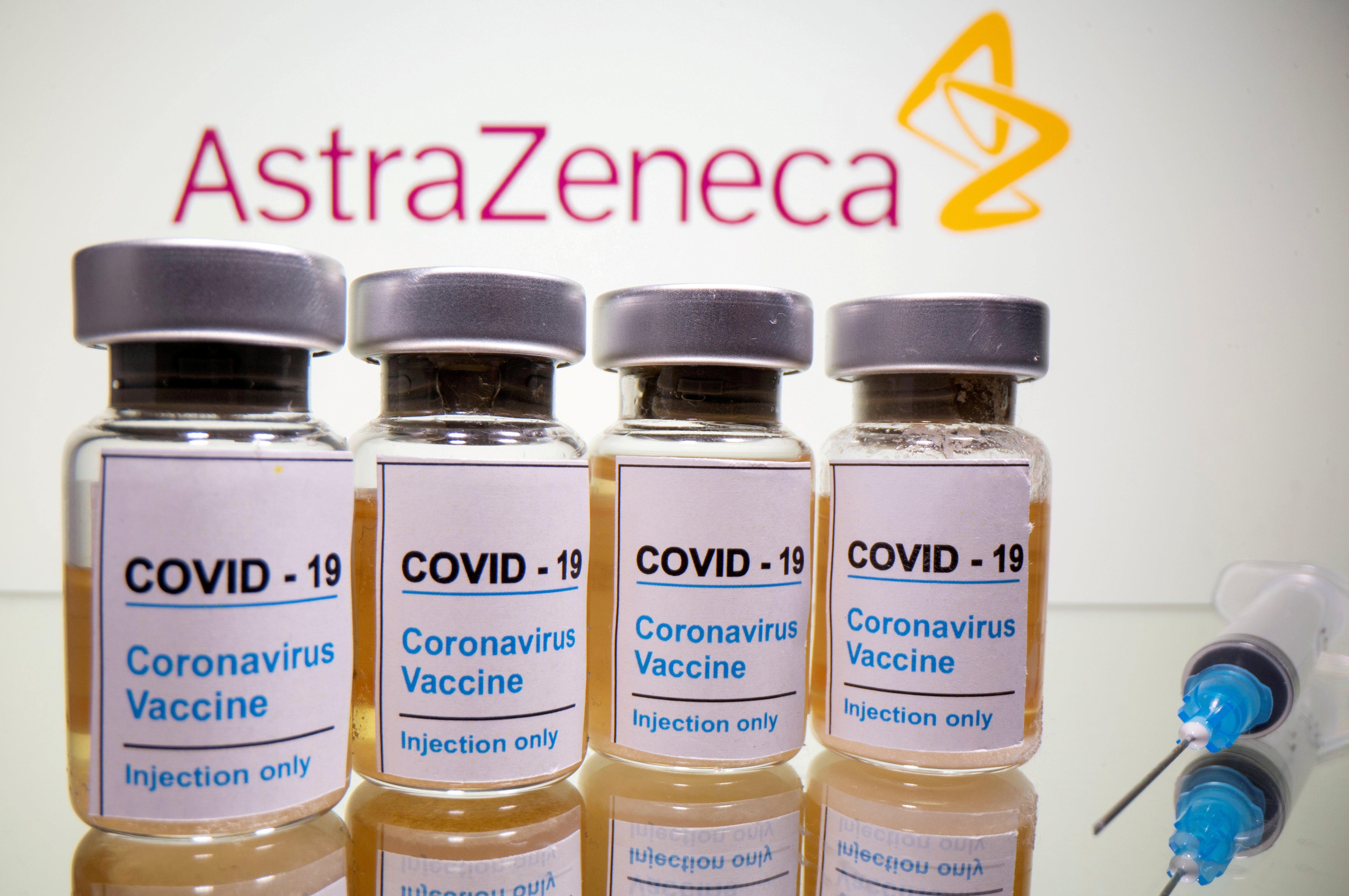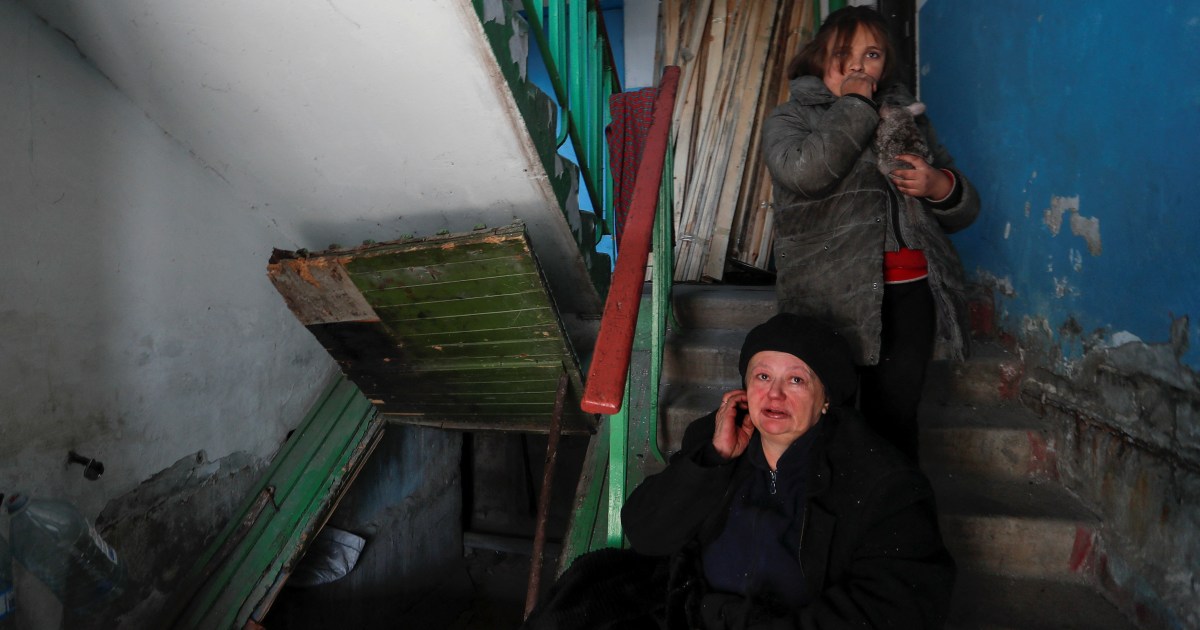Russia-Ukraine war live: Russia launches further strikes on Zaporizhzhia, damaging hospital, as water restored in Kyiv | Ukraine
Russian strikes have damaged a hospital in Zaporizhzhia overnight, the region’s governor, Oleksandr Starukh, said on Telegram.
He wrote:
The enemy again attacked the suburbs of Zaporizhzhia. This time the rockets hit near the hospital. Fortunately, people were not injured, the same cannot be said about the building. Dozens of broken windows.
The attacks come as Russia’s latest barrage shut down all of Ukraine’s nuclear plants – one of which is located in Zaporizhzhia – for the first time in 40 years.
Volodymyr Zelenskiy told the Financial Times that this week’s strikes had created a situation not seen for 80 or 90 years: “A country on the European continent where there was totally no light.”
By early Thursday evening, officials said a reactor at one nuclear plant, Khmelnytskyi, had been reconnected to the grid.
The vast Zaporizhzhia plant in Russian-held territory was reconnected on Thursday, Ukrainian nuclear power company Energoatom said.
Key events
Please turn on JavaScript to use this feature
Forbes Ukraine estimates that Russia has spent $28bn – or a quarter of its annual budget – on its war in Ukraine, which has lasted nine months so far.
Forbes reports:
This estimate includes the direct costs that are necessary to support military operations. But it does not include stable defence spending, or losses related to the economy.
In 2021, all budget revenues of Russia amounted to $340bn. That is, the Russian Federation has already spent a quarter of last year’s revenues on military operations.
If in the spring such costs could look quite acceptable, considering that the Russian Federation received about $1bn a day for oil and gas. Now the situation is different.
The revenues of the federal budget of the Russian Federation from the export of oil and gas are decreasing – Russia has already lost most of the European gas market after the Nord Stream supply was cut off. Sanctions on Russian oil will begin in December.
Oil prices rose in Asia on Friday after a week marked by worries about Chinese demand and haggling over a western price cap on Russian oil, Reuters reports.
Brent crude futures rose by 28 cents, or 0.33%, to trade at $85.62 a barrel at 0410 GMT.
G7 and European Union diplomats have been discussing levels for a Russian price cap of between $65 and $70 a barrel, with the aim of limiting revenue to fund Moscow’s military offensive in Ukraine without disrupting global oil markets.
“The market considers (the price caps) too high which reduces the risk of Moscow retaliating,” ANZ Research analysts said in a note to clients.
The Russian president, Vladimir Putin, has said Moscow will not supply oil and gas to any countries that join in imposing the price cap, which the Kremlin reiterated on Thursday.
Trading is expected to remain cautious ahead of an agreement on the price cap, due to come into effect on 5 December when an EU ban on Russian crude kicks off, and ahead of the next meeting of the Organization of the Petroleum Exporting Countries and allies, known as OPEC+, on 4 December.
Russian strikes have damaged a hospital in Zaporizhzhia overnight, the region’s governor, Oleksandr Starukh, said on Telegram.
He wrote:
The enemy again attacked the suburbs of Zaporizhzhia. This time the rockets hit near the hospital. Fortunately, people were not injured, the same cannot be said about the building. Dozens of broken windows.
The attacks come as Russia’s latest barrage shut down all of Ukraine’s nuclear plants – one of which is located in Zaporizhzhia – for the first time in 40 years.
Volodymyr Zelenskiy told the Financial Times that this week’s strikes had created a situation not seen for 80 or 90 years: “A country on the European continent where there was totally no light.”
By early Thursday evening, officials said a reactor at one nuclear plant, Khmelnytskyi, had been reconnected to the grid.
The vast Zaporizhzhia plant in Russian-held territory was reconnected on Thursday, Ukrainian nuclear power company Energoatom said.
Summary
This is the Guardian’s live coverage of the war in Ukraine. I’m Helen Sullivan and I’ll be bringing you the latest as it happens for the next while.
Russian strikes have damaged a hospital in Zaporizhzhia overnight, the region’s governor, Oleksandr Starukh, said on Telegram.
On Thursday night, more than 24 hours after Russian strikes had devastated Kyiv’s infrastructure, the city’s mayor, Vitali Klitschko, said 60% of homes were still suffering emergency outages. Water services had been fully restored however, said city officials.
Here are the other key recent developments:
- Russia risked causing a “nuclear and radioactive catastrophe” by launching attacks in which all Ukraine’s nuclear power plants were disconnected from the power grid for the first time in 40 years, Ukraine’s nuclear energy chief said. Ukrainian officials said on Wednesday that three nuclear power plants on territory held by Ukrainian forces had been switched off after the latest wave of Russian missile strikes on Ukrainian energy facilities.
- Ukraine expected the three nuclear power plants would be operating again by Thursday evening, energy minister German Galushchenko said.
- More than 15,000 people have gone missing during the war in Ukraine, an official in the Kyiv office of The Hague-based International Commission on Missing Persons said. The ICMP’s programme director for Europe, Matthew Holliday, said it was unclear how many people had been forcibly transferred, were being held in detention in Russia, were alive and separated from family members, or had died and been buried in makeshift graves.
- European Union governments remained split over what level to cap Russian oil prices at to curb Moscow’s ability to pay for its war in Ukraine without causing a global oil supply shock, with further talks expected on Friday. Six of the EU’s 27 countries are said to be opposed to the price cap level proposed by the G7, which will come into force on 5 December.
- Foreign ministers from the G7 will discuss how to further support Ukraine in ensuring its energy supply during a meeting in Bucharest next week, German foreign minister Annalena Baerbock said.
- The European Union is pressing ahead with a ninth sanctions package on Russia in response to Moscow’s attack on Ukraine, the European Commission chief, Ursula von der Leyen, said during a visit to Finland. She said the EU would “hit Russia where it hurts to blunt even further its capacity to wage war on Ukraine”.
- Ukraine’s president, Volodymyr Zelenskiy, said Russia’s new strategy to destroy Ukraine’s infrastructure would not weaken the country’s resolve to liberate all occupied land, describing the conflict, in an interview with the Financial Times, as a “war of strength and resilience” and pushing back against western fears of escalation.
- In his address late on Thursday, Zelenskiy said: “Together we endured nine months of full-scale war and Russia has not found a way to break us, and will not find one.” Zelenskiy also accused Russia of incessantly shelling Kherson, the southern Ukrainian city that it abandoned earlier this month. Seven people were killed and 21 wounded in a Russian attack on Thursday, local authorities said.
- Hungary’s prime minister, Viktor Orbán, said that his country’s parliament would ratify Nato membership for Finland and Sweden early next year. Hungary and Turkey are the only members of the alliance who have not yet cleared the accession.
- Hungary will provide €187m ($195m) in financial aid to Ukraine as its contribution to a planned EU support package worth up to €18bn in 2023, according to a government decree.
- British foreign minister James Cleverly said the UK would pledge millions of pounds in further support for Kyiv to ensure the country has the practical help it needed through the winter. Cleverly is visiting Ukraine and is set to meet Zelenskiy and foreign minister Dmytro Kuleba on the trip.
- Russia and Ukraine have carried out the latest in a series of prisoner of war exchanges, with both sides handing over 50 people, officials in Kyiv and Moscow confirmed.
- Belarusian president Alexander Lukashenko provoked ire in Ukraine by suggesting that the end of the war is Ukraine’s responsibility, and that if it does not “stop”, it will end in the “complete destruction” of the country. He said that similar to relations with Germany after the second world war, once the Ukraine war has concluded “we will make it all up”.
- Ground battles continue to rage in eastern Ukraine, where Russia is pressing an offensive along a stretch of frontline west of the city of Donetsk, which has been held by its proxies since 2014.




